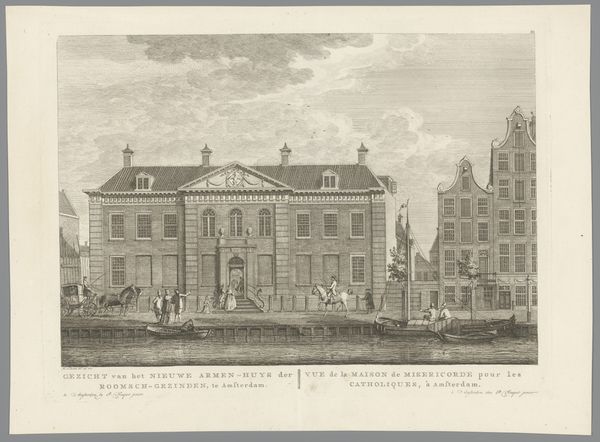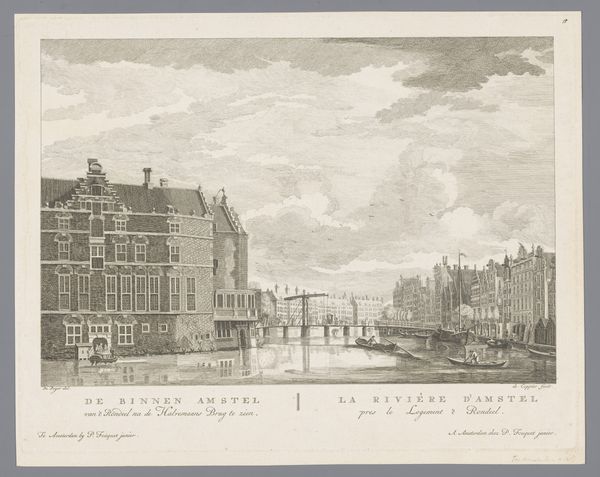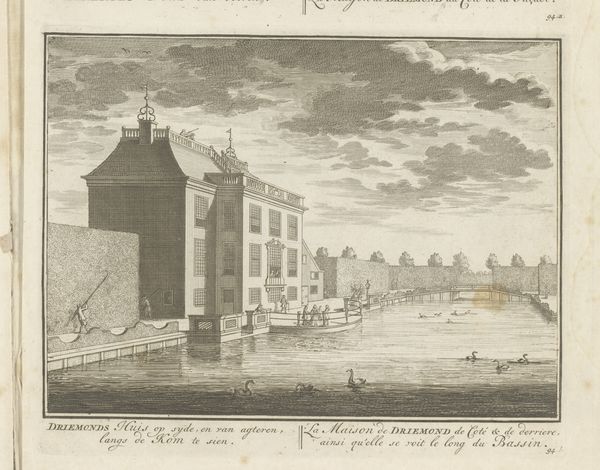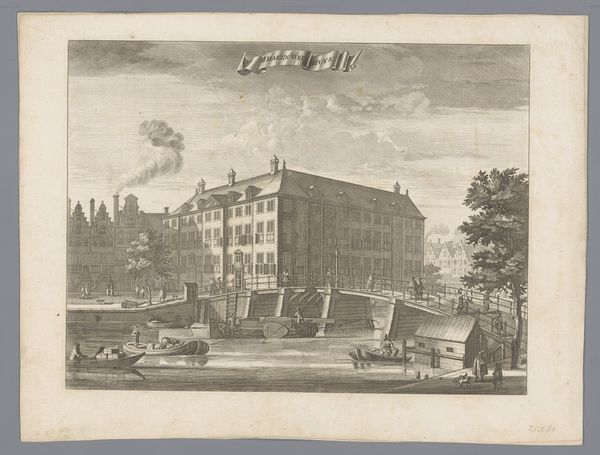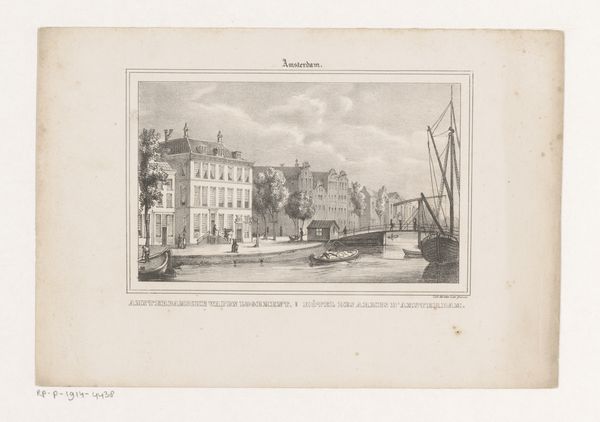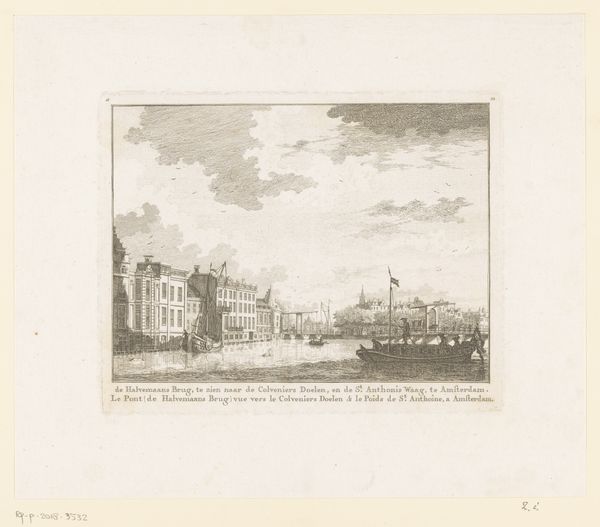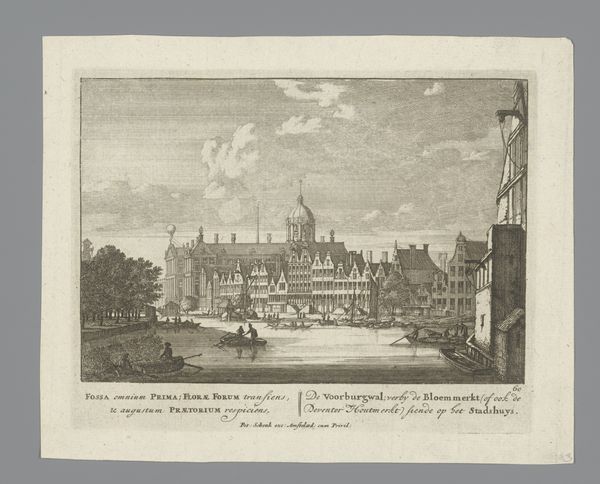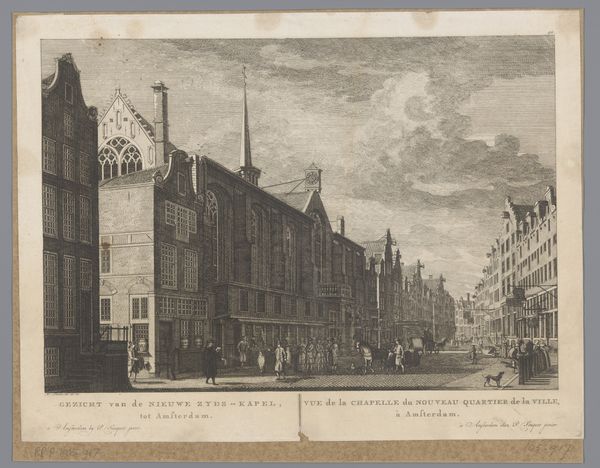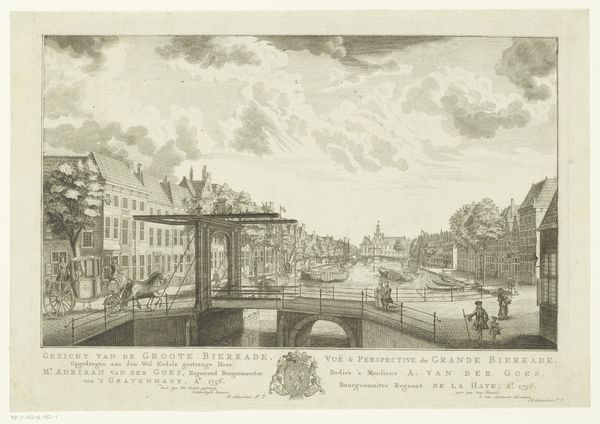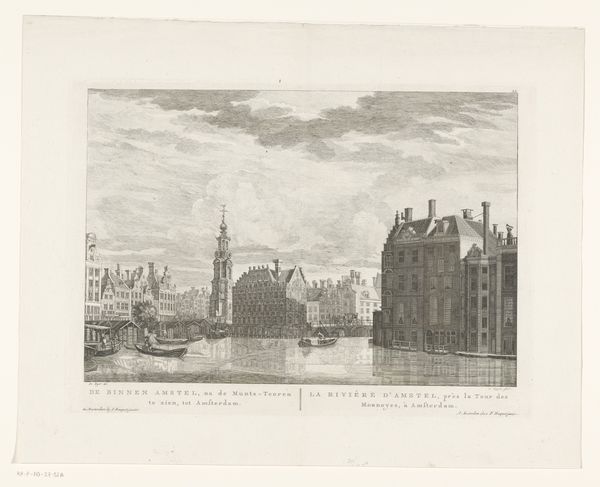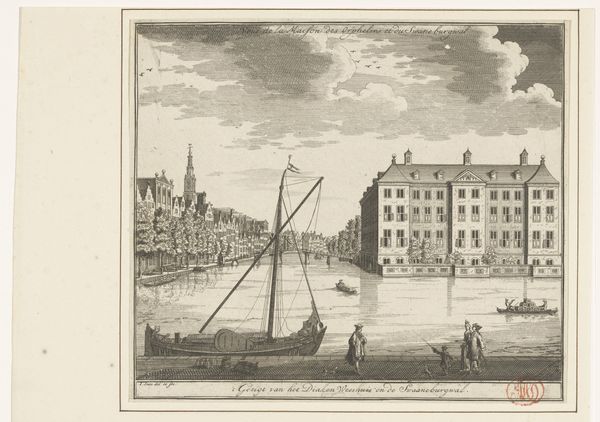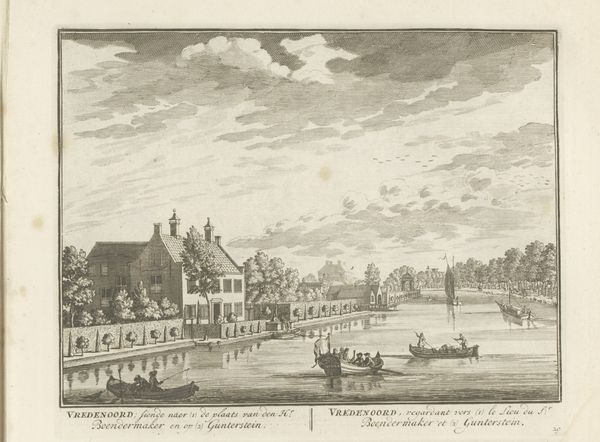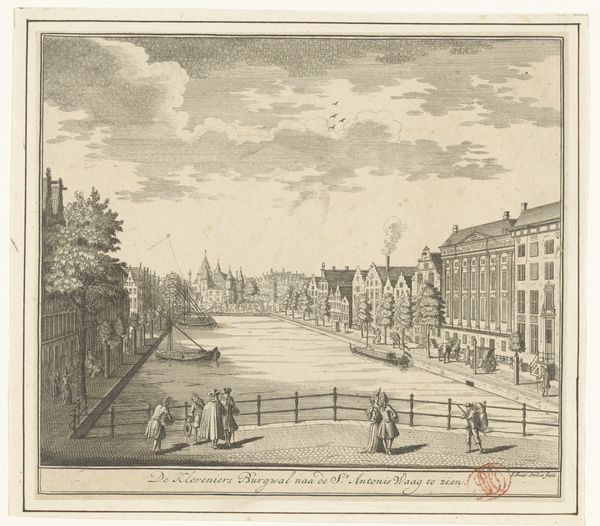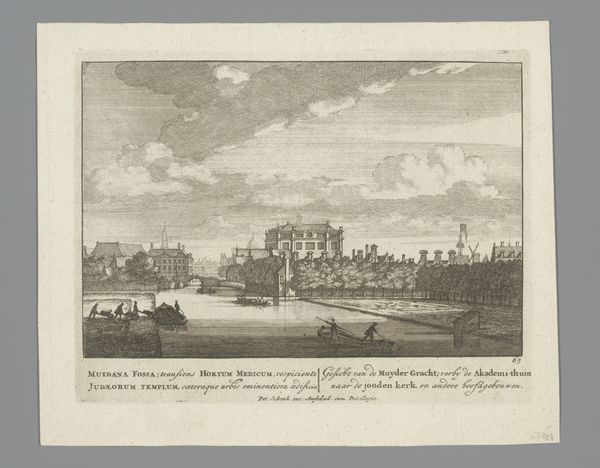
Dimensions: height 284 mm, width 400 mm
Copyright: Rijks Museum: Open Domain
This print shows a view of the Amstel river in Amsterdam. We don’t know exactly when it was made, or by whom, but the name de Coppier is associated with it. Prints like this were typically made by engraving lines into a metal plate, inking the surface, and then using a press to transfer the image onto paper. It's a process perfectly suited for the rise of commerce; it allows for relatively quick reproduction and dissemination of images. Think about the labor involved: the engraver, the papermaker, the printer, and the individuals involved in distributing and selling the final product. Each of these roles contributed to the widespread circulation of visual information and the creation of a shared visual culture. The level of detail in this print – from the reflections in the water to the intricate architectural details – speaks to the skill of the engraver, but also to the economic system that supported this kind of production. It's a reminder that art is always connected to broader social and economic forces.
Comments
No comments
Be the first to comment and join the conversation on the ultimate creative platform.
